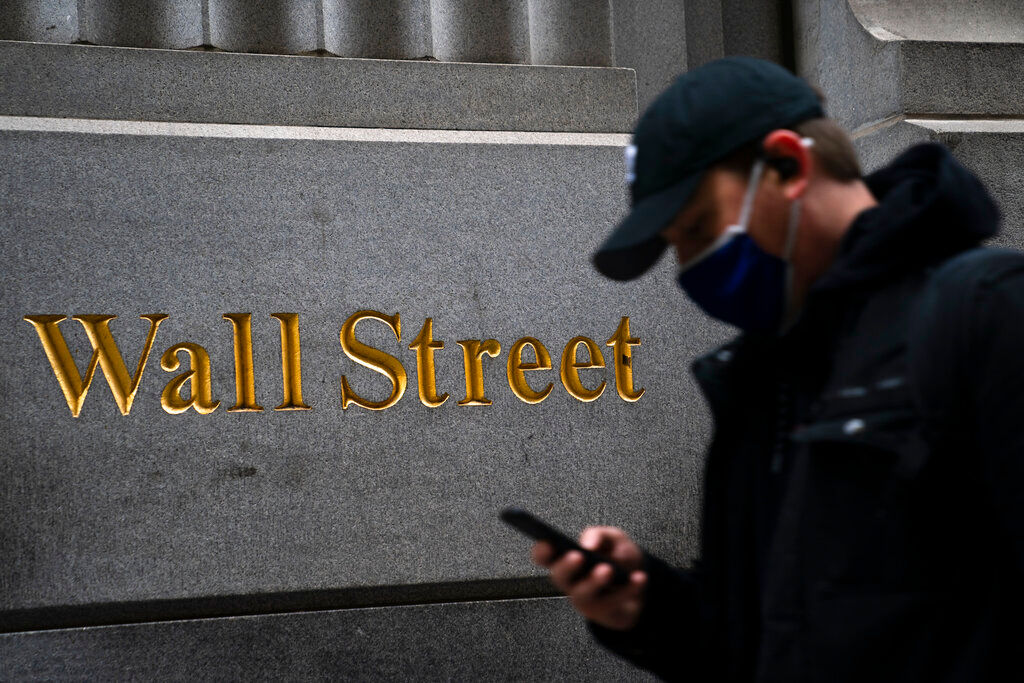Technology firms led the way up on Wall Street on Tuesday, as oil prices fell substantially for the second day in a row and inflation fears eased. The market rise occurred only one day before the Federal Reserve’s widely anticipated interest rate policy report.
Also Read| Trending Stocks: Paytm, Zomato, PNB, Kotak Bank and others in news today
The S&P 500 gained 2.1%, snapping a three-day losing run after a study revealed that inflation’s fast growth slowed at the wholesale level last month. The Dow Jones Industrial Average gained 1.8%, while the Nasdaq Composite gained 2.9%.
Also Read| Trade Setup: Top 15 things to know before market opens on March 16, 2022
The wilder action was in oil and Asian stock markets, where tightened anti-COVID measures in China are raising worries about demand for energy and about disruptions to manufacturing and global trade. Oil prices tumbled more than 6%, taking some pressure off the world’s high inflation, and a barrel of U.S. crude fell below $97 after starting the week above $109. Stocks in Hong Kong sank more than 5% for a second straight day after the neighbouring city of Shenzhen was ordered into a shutdown.
Also Read| US Stock Market: DJIA, S&P500 and Nasdaq turns green in early trade on Tuesday
The S&P 500 rose 89.34 points to 4,262.45. The Dow gained 599.10 points to 33,544.34, and the Nasdaq rose 367.40 points to 12,948.62. Smaller company stocks also gained ground. The Russell 2000 index rose 27.25 points, or 1.4%, to 1,968.97.
Also Read| India plans Rs 24,000 crore sovereign green bond issue
Central banks around the world are preparing to pull the plug on the support they poured into the global economy after the pandemic struck. The Fed began a two-day meeting on interest rates, and the wide expectation is that it will announce on Wednesday an increase of 0.25 percentage points to its key short-term rate.
Also Read| Ukraine partners with Everstake, FTX to launch new crypto donation website
That would be the first increase since 2018, pulling it off its record low of nearly zero, and likely the first in a series of rate hikes. The Fed is trying to slow the economy enough to tamp down the high inflation sweeping the country, but not so much as to trigger a recession.
Inflation is already at its highest level in generations, and the most recent numbers don’t even include the surge in oil prices that occurred after Russia invaded Ukraine.
Also Read| Oil prices drop around 6% on easing supply concerns, Ukraine talks
Treasury yields dipped immediately after the reports, then edged higher by afternoon. The yield on the 10-year Treasury rose to 2.15% from 2.14% late Monday. The two-year yield, which moves more on expectations for Fed policy changes, fell to 1.86% from 1.87%.
Also helping to pull down yields were the tumbling oil prices. A barrel of U.S. crude dropped 6.4% to settle at $96.44. It had briefly topped $130 last week when worries about disruptions to supplies because of the war in Ukraine were at their height. Brent crude, the international standard, fell 6.5% to settle at $99.91 per barrel.
Also Read| Nestle, HUL announces price hike: Maggi, tea to get costlier
A reprieve on fuel prices helped a wide variety of stocks, and the majority of companies in the S&P 500 were rising. Airlines led the way after several raised their forecasts for revenue this quarter. American Airlines, Delta Air Lines and United Airlines all soared 8% or more.
Tech and other high-growth stocks also recovered some of their earlier losses as Treasury yields fell. Higher interest rates can hurt such stocks more than others because they’re seen as more expensive relative to their earnings.
Also Read| Direct NATO-Russia clash would trigger World War III, says President Joe Biden
In overseas stock markets, European indexes were down modestly. Stocks in Shanghai slumped 5% and Hong Kong’s Hang Seng lost 5.7% despite the release of data showing strong increases in Chinese retail sales, industrial production and investment in January-February. It followed a decision by China’s central bank not to ease interest rates to spur economic growth.
Shares in Hong Kong have sunk to near six-year lows after the neighbouring city of Shenzhen was ordered into a shutdown to combat China’s worst COVID-19 outbreak in two years.
Also Read| RBI directs Paytm Payments Bank to stop taking on new users
In other developments, the London Metal Exchange said trading in nickel will resume Wednesday, just over a week after it was suspended when the price of the metal skyrocketed to over $100,000 per ton.







